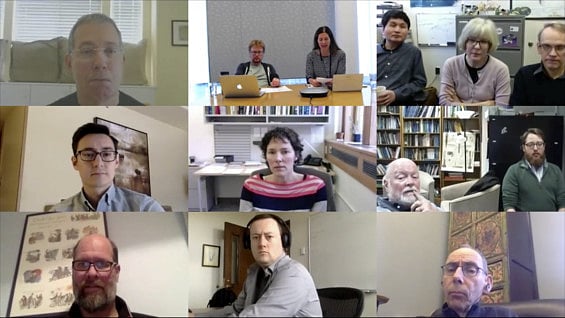Some ways to do business have changed forever
But the biggest switch could come on the outsourcing side

Companies are having to deal with countless changes in the way they do business. Some present challenges but others offer new opportunities to work smarter.
The UAE Ministry of Human Resources and Emiratisation (MOHRE) issued Ministerial Resolution No.279 of 2020 (Resolution), containing guidance to support UAE employers with measures they can take in response to the COVID-19. Key areas include working from home, paid leave, unpaid leave, temporary/permanent reduction in salary, redundancies, and hiring new employees.
These measures allow employers to implement immediate changes to survive the crisis, as well as offering more flexibility for the future. We expect further updates to employee contracts in regards to part-time work, which would open up previously untapped talent pools, such as stay-at-home parents.
A clear framework is needed to make part-time employment feasible for both the employer and employee, but a change in attitudes has the potential to increase productivity and improve customer service, while reducing fixed costs, such as transportation allowances and large office overheads.
Need to restructure
The current situation has led to a rise in the number of businesses restructuring, and this is one of the most important steps to safeguard the future in any economic climate. From combining trade licences and streamlining group entities to improving corporate governance, there are opportunities for all companies. If you answer yes to any of the below questions, now is the time to review the business structure:
* Does your company operate in more than one GCC country?
* Is your company using multiple sponsors in the GCC?
* Did you arrange your sponsorship agreement(s) more than 18 months ago?
* Does your company group have multiple licenses?
* Are there opportunities to downsize and save costs?
Transition to digitised operations
The UAE has responded quickly with free zones introducing flexible procedures to ensure business continuity. Requirements were modified for new business setups and streamline the process for license renewals and amendments. E-signatures are now accepted by certain government entities and some free zones are accepting scanned documentation to complete a business setup.
In respect to foreign corporate documents, depending on the authority being dealt with, legalisation/consular attestation is no longer required from parent companies for incorporation or process trade licenses. Some authorities are waiving the requirement for original corporate documents and accepting copies.
Things may revert back once the pandemic passes; however, we are hopeful there will be more online services available.
Outsourcing services
Many employers are looking to reduce staff costs by outsourcing PRO support, HR, accounting, marketing and legal requirements. As well as cost reduction, another benefit is having access to a greater pool of expertise as specialist companies will have many skilled staff on call.
This is also a good opportunity for complementary businesses to combine their setup and provide more affordable packages for businesses to take advantage. There are several automated systems available to purchase in areas like HR and accounting, and we anticipate a growth in online outsourcing platforms, offering things like PA and admin assistance.
Shift to online
There have been various updates about the introduction of online working and businesses that didn’t already have a process in place had to adapt quickly. Some benefits we’re seeing is their ability to access skills and support from anywhere in the world as they become more reliant on virtual interaction rather than physical presence.
This changing paradigm will reduce travel costs and fixed overheads, while maintaining and even improving service levels. We have been told our society would head towards a paperless work environment, and the recent remote working has accelerated this possibility. From digital signatures on contracts to video calls to verify documentation, it appears that many more smarter ways to operate will be discovered in the coming months.
- Scott Cairns is Managing Director, Creation Business Consultants.
Sign up for the Daily Briefing
Get the latest news and updates straight to your inbox
Network Links
GN StoreDownload our app
© Al Nisr Publishing LLC 2026. All rights reserved.